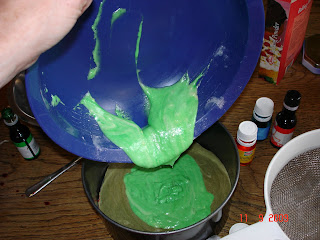Open day
Isabelle used her light sabre to point out which art on the wall was hers.

But one of my favourites was her simile.

Aidan took some photos too.

Apparently the floor was extremely interesting!

Aidan had done a multicolour P.













Labels: education, Playcentre, reviews

Labels: Aidan
Labels: Orla, Random stuff
Labels: Aidan, Birthday, Suburban housewife